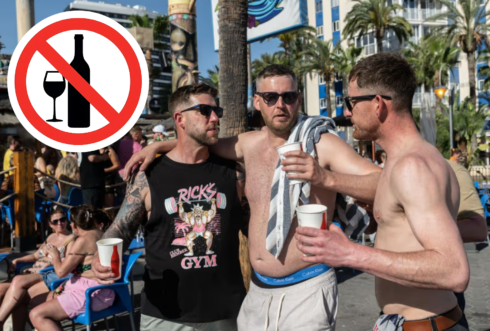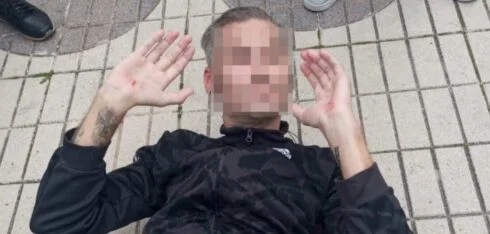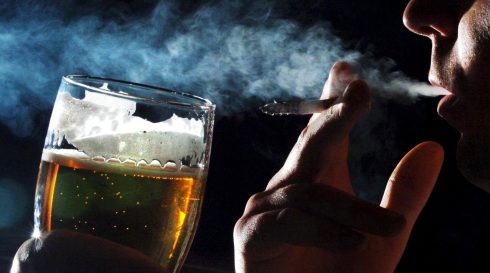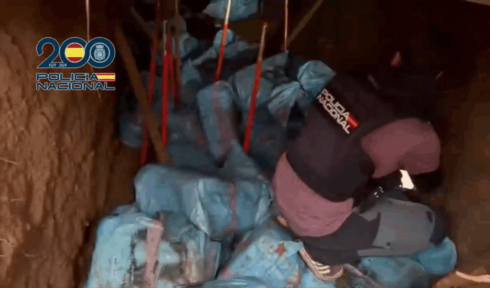THIS WEEK saw the Spanish authorities announce that they had seized 11 tonnes of cocaine as part of two operations to combat the smuggling of narcotics inside shipping containers.
Pictures and videos were released of officers from the National Police standing in front of the massive haul in the patio of a Madrid police station, with hundreds of packets of the drugs sitting in neat piles.
But what happens to these illicit substances once they are in the possession of the police?
The Spanish government has created a protocol for the analysis, custody and destruction of such drugs, starting with the thorny problem of their storage.
Many cities in Spain do not have dedicated sites where seized narcotics can be safely held, meaning that in practice they end up in police stations – either in safes or in designated rooms.
But this causes problems due to the risks they might be stolen as well as the lack of space in such installations.
To address this problem, the protocol states that, wherever possible, the haul be destroyed as soon as possible, once a ‘sufficient number of samples’ are taken and sent to the Health Ministry’s laboratory for analysis.
The samples, the protocol also sets out, should then be destroyed a month later provided there is no court order precluding that.
But how are the drugs destroyed? First of all, the Spanish courts must authorise the process. Once this authorisation has been received, various units from the security forces will travel to the holding point in question and take charge of the narcotics.
The drugs are then taken to waste-processing plants and incinerators, where they are burned at high temperatures.
When the process is complete, a document must be signed by all of the parties present to guarantee that the narcotics have been completely decommissioned.
The companies that are used to destroy the drugs currently have contracts worth €300,000 a year with the Interior Ministry and are located in the region of Asturias and the province of Toledo, according to online daily 20 Minutos.
For now there are no government plans to create a dedicated centre for this process and external companies will continue to be used.
Read more:
- Police seize 322 kg of cocaine hidden between popcorn bags in Algeciras (Cadiz)
- Lorry packed with rotting vegetables was hiding marijuana worth €1.3 million in Spain’s Murcia
- Cocaine cowboys: Three day search of animal cargo ship fails to find drugs
Click here to read more Crime & Law News from The Olive Press.








